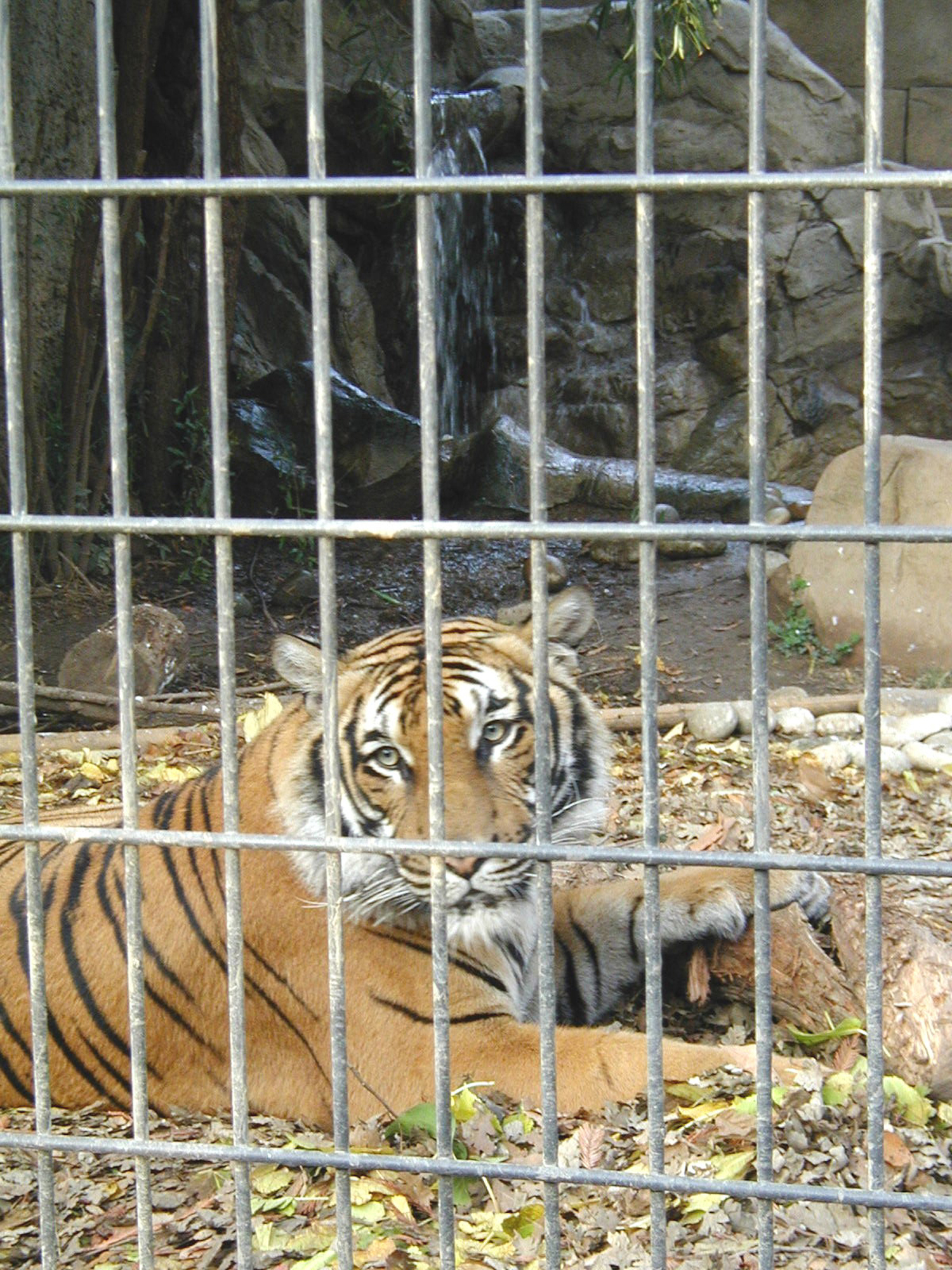OVER the Christmas (and please, can we stop calling it the holiday season straight away, before our entire lives turn into an advertisement for Budweiser?), lots of people probably felt like that tiger in a San Francisco zoo who apparently jumped over a 13-foot wall and attacked three people. I know, I know, a boy died and it doesn’t do to make light of it and something should be done and all that. But really, doesn’t it go to show what a disastrous effect unnatural confinement has on the animal spirit?
Tatiana the tiger escaped her enclosure and attacked and killed 17-year-old Carlos Sousa, then chased after his two friends as they ran away. It was reported that the young men might have been taunting her. She was shot dead by policemen, to the dismay of animal rights supporters who felt she should have been fired at with tranquiliser darts (though really, if British police can shoot harmless Brazilians on the Underground, we can hardly be surprised at CSI-fed American ones deciding to ask questions later in the case of an irate Siberian tiger).
Tatiana had a reputation for not keeping her temper under pressure: she mauled a zookeeper’s arm last year. This has led some people to castigate Tatiana now for simply being a bad cat. Other people are blaming the boys for being stupid enough to provoke a wild animal, if that’s what they did; others blame the San Francisco zoo; still others blame the government, any government. Whoever is at fault, maybe this is a good moment to ponder (yes, yet again) whether it’s time to put an end to the whole distasteful, anachronistic practice of incarcerating animals for human amusement.
Zoos claim to do a vital job in preserving species from extinction. It’s hard to quarrel with that, as it seems to be an answer to a question that was flawed in the first place. But for the sake of argument: not all the zoos in the world can save those species that are lost through human destruction of their habitats. Zoos keep threatened species in such small numbers anyway that the gene pool is dangerously diminished. And of even those endangered animals that are somehow, with the aid of drugs, music and mood lighting, coerced against their better judgement into mating in captivity, how many of their offspring are ever returned to the wild? Zoos will tell you that captive-bred animals do not have the skills to survive in their natural habitat – really, how can anyone use that to make a case in favour of zoo conservation?
There’s also the revealing fact that zoos tend to be home to crowd-pleasers – animals that are cute, or massive, or funny, or ferocious, or most popularly of all, animals that look and act a bit like us (as there’s nothing people like more than being reminded of the theory that monkey DNA is only 2% different from our own). Where are all the ugly endangered animals?
As for the claim that zoos educate people about wildlife, it’s a sham. A miserable elephant with eyes as vacant as a methadone addict’s tells you nothing about the wonder of the natural world and everything about what it’s like to live in a zoo. You would learn more about nature by contemplating a field mouse in your own back garden.
But in any case, the fact that the arguments in favour of zoos are specious is beside the point. The whole rationale of zoos is buttressed by the belief that humans are better than animals – that humans, in fact, are not also animals themselves. When you look closely at this idea, it’s hard to see on what basis we cling to it.
Some people subscribe to the religious theory that suggests people have souls and animals don’t. This is quaint, and people are entitled to believe it if they want – even though they may be breaking the hearts of their children as they mourn a dead pet – but it’s based on faith, not reasoning.
It can’t just be down to animals’ inferior intelligence, otherwise what are we to do about people with profound mental handicaps, or the fact that chimps are brainier than babies? Humans can write symphonies, people often say – though really, the percentage of the human population since the beginning of time who have shown they can write a decent symphony is so infinitesimal as to call to mind monkeys at a typewriter.
Animals experience fear, tenderness, anger, delight, surprise, jealousy… They communicate, they remember, they dream, they form attachments, they grieve. For the most part, they are decent enough to kill only those living things they intend to eat.
Even more tellingly, when you take animals out of an environment where they can apply their natural gifts and impulses, they behave exactly as people do. They overeat, they get bored, they start manifesting pointlessly repetitive behaviour, they overgroom, they can’t see the point of anything, they have to be given anti-depressants… They go out of their minds, they mutilate themselves, they become needlessly aggressive, they start killing people. They suffer.
Our descendants will one day be as shocked at our imprisonment of animals in zoos as we are today about the Victorians’ partiality for gawking at human sideshow freaks. They will wonder what kind of creatures we were that we did not act on the uniquely human ability to sympathise with other living things.
Published in the Sunday Tribune, 30 December 2007
